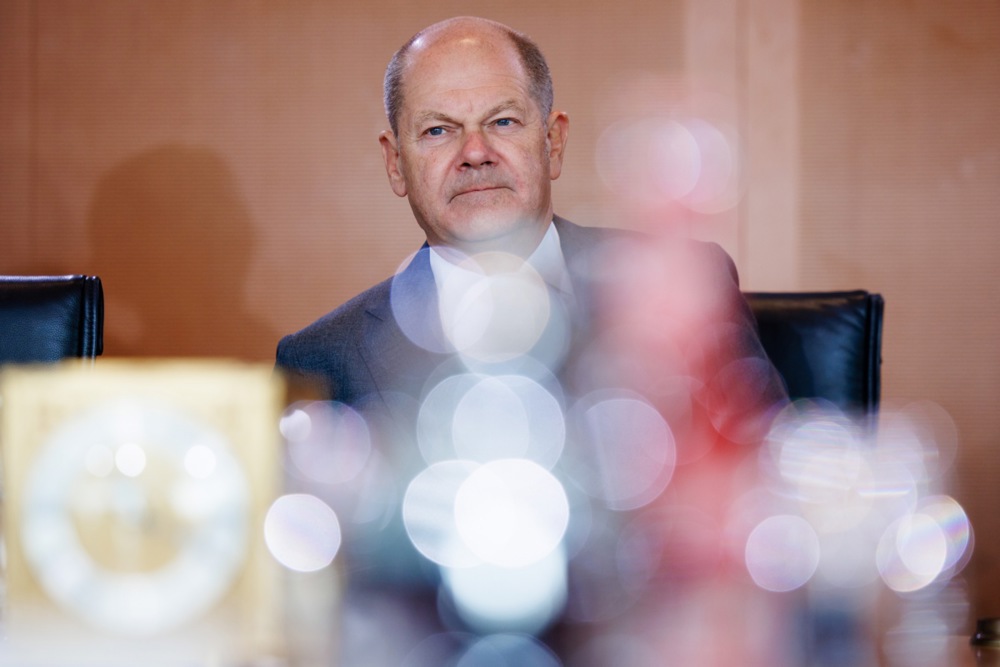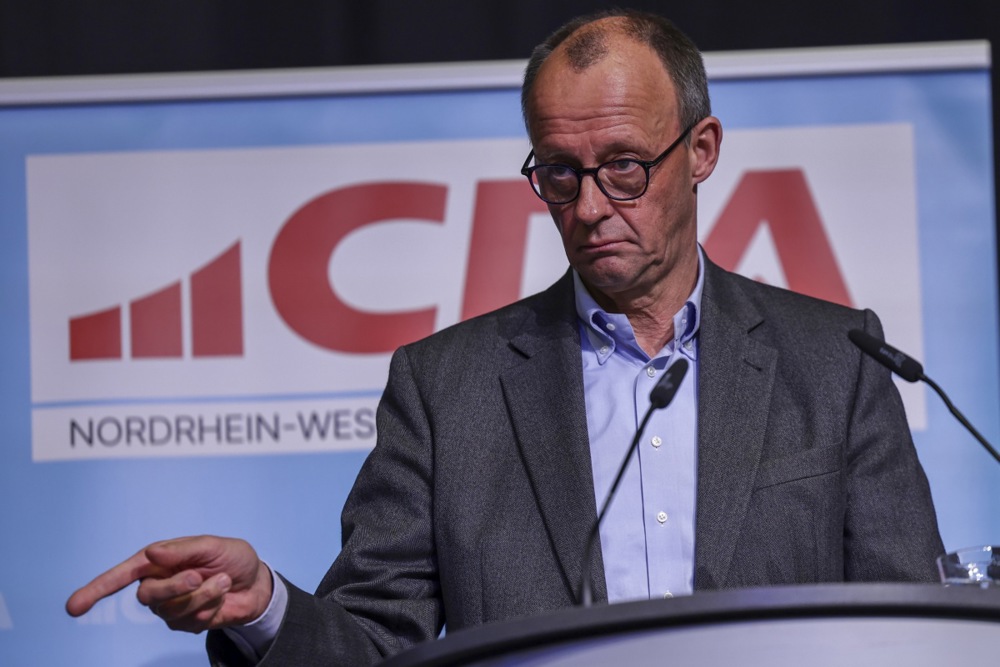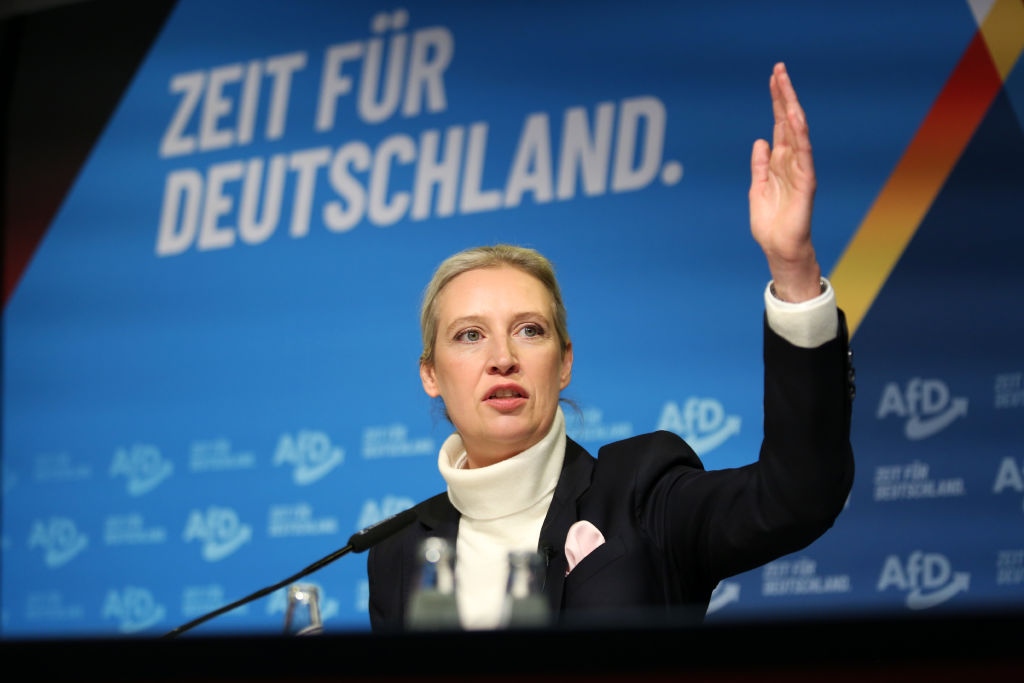Germany’s left-green government has been using taxpayers’ money to fund the organisations behind a wave of mass protests against the Christian Democratic Union (CDU) and Alternative for Germany (AfD), according to an investigation by news outlet NIUS.
After the CDU accepted the support of the hard-right AfD in parliament to get a majority on a vote on migration, the Left accused the CDU of tearing down the so-called “firewall”, the principle of not co-operating with the AfD.
The Left called for protests.
Several organisations at the forefront of those protests had received substantial financial support from various federal ministries, NIUS said in its report on February 9 .
For instance, Campact, a key organiser of the “Uprising of the Decent” protest in Berlin, has received €2.5 million from the Federal Ministry of Family Affairs since 2020. This funding was channelled through HateAid, of which Campact is the main shareholder, the news outlet reported .
Campact has spearheaded numerous protests against the AfD and other right-wing movements in Germany.
Similarly, Omas gegen Rechts (Grannies against the Right), which organised a protest in Hanover with around 24,000 participants, received €18,000 from the Federal Ministry of Family Affairs’ Demokratie Leben! (Live Democracy!) programme. Additionally, the group received €5,000 from the Federal Chancellery, totalling €23,294.22 in public funds, NUIS said.
“The SPD chancellor’s house is thus financing an organisation that directly opposes [Chansellor] Scholz’s political rival in the election campaign,” the news outlet noted.
In 2024, the organisation successfully pressured the Berliner Volksbank to shut down AfD’s donation account through an online petition.
Launched in 2015, Demokratie Leben! aimed to promote democratic values It also distributed millions in funding to groups opposing right-wing movements.
The second funding period of the German federal programme 2020-2024 focused on promoting democracy, shaping diversity and preventing extremism, NUIS stated.
At the launching event for the third funding period 2025-22029, Greens Federal Minister Lisa Paus claimed the programme was successful in targeting young Germans.
“The evaluation showedd that ‘Live Democracy!’ works and we reach children, teenagers and young adults in particular. They are encouraged to get involved, to recognize extremism and to stand up against it,” she said.
In the upcoming programmes, the German government said it would focus on new priorities “against conspiracy theories and hate on the internet”.
A note from the government said that by March 2024, around 700 projects had received funding under this programme, with a total of €182 million spent in 2024 alone.
A man in Bavaria had his house raided by police after retweeting a meme mocking German Vice-Chancellor Robert Habeck of the Greens party. https://t.co/pRdkEZl45k
— Brussels Signal (@brusselssignal) November 14, 2024
The German Federation for the Environment and Nature Conservation (BUND), traditionally focused on environmental policy, has also been actively involved in these protests, NIUS found.
BUND co-organised the “We Are the Firewall” demonstration in Stuttgart on February 1, 2025. The organisation received significant financial support from various ministries, including €2 million from the Federal Ministry of Economics under Robert Habeck in 2023.
Personal ties further underscored the interconnectedness between these organisations and the government, NUIS reported.
Verena Graichen, the deputy chairwoman of BUND, is the sister of Patrick Graichen, the former secretary of state for economic affairs and the wife of Michael Kellner, a current parliamentary state secretary under economics minister Robert Habeck.
The recent large demonstration in Munich, which attracted 250,000 participants, was organised by the association Before, chaired by SPD city councillor Micky Wenngatz, according to NUIS.
This apparent blurring of lines between political activism and state involvement has raised concerns with many Germans about the independence of these protests.
Und wer steckt hinter Campact?
Richtig: George Soros, der "Philanthrop", der gerne mit seinen NGOs wie BLM die Bevölkerung spaltet pic.twitter.com/vBf0CmujcJ
— Ixora (@IxoraPaveta) February 6, 2025
“Together against the Right”, which mobilised large-scale protests against the CDU on social media, was cited as another example. This alliance, backed by Campact, was instrumental in organising the “Uprising of the Decent” in Berlin, NUIS said.
The financial backing from the federal government, coupled with the political affiliations of the organisers, suggested to NUIS a deeper level of state involvement in these protests.
This revelations negated the narrative of the demonstrations as grassroots movements against right-wing politics and even challenge the notion of independent activism, it said.
CDU election campaigners and party offices were even attacked at some rallies, NUIS added.
The revelations came as questionable uses of taxpayers’ money from the previous US government were being made public by the current administration, leading to increased scrutiny about the financing of political organisations in the broader West.
Correctiv, the non-profit investigative newsgroup that broke the story about a “conspiratorial” Alternative für Deutschland (AfD) gathering, turns out to have had secret meetings with the Federal Government, including the German Chancellor. https://t.co/J4ExJCZet8
— Brussels Signal (@brusselssignal) February 15, 2024
The Omas gegen Rechts reacted strongly to the NIUS investigation regarding its funding and denied any financial misconduct, stating that its involvement was “voluntary and without remuneration”.
It further stressed it was a decentralised organisation, with no hierarchical oversight.
Omas gegen Rechts also took offence to the wording of the questions by NIUS, which addressed them as “dear ladies” and the group stated that it represented “an attitude and not biology.”
The survey published on July 22 was conducted among 1,001 party members. Just 33 per cent said they would support Scholz again as chancellor in the upcoming German general elections in 2025.https://t.co/uKeBI88Jxv
— Brussels Signal (@brusselssignal) July 22, 2024
Since 2024, discussions have intensified about the possibility of banning the AfD in Germany due to concerns over its far-right positions and perceived threats to democracy.
By January 2025, a cross-party group of 124 members of the Bundestag, or parliament, had put forward a motion to initiate proceedings before the Federal Constitutional Court to ban the party.
Amid this politically charged atmosphere, activists and government-backed organisations have continued to push for legal action against the AfD.





